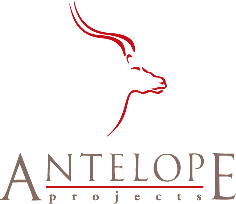Case Purpose
Companies can be both successful and unsuccessful at the same time. In
particular, quick financial success in one part of a business can make
things more difficult elsewhere. In this case, we look at a start-up company
in which the major decisions that drove the financial fortunes of the company
were very well taken, but the technical foundation of the company became
unmanageable.
Case Description
Background
MSI was founded to supply systems for designing mobile phone networks to
mobile phone companies. It had some good technical ideas and there was
a very strong market for anything that would help mobile phone operators
improve the quality of service to their customers – particularly in the
area of signal and coverage.
On the back of supply the technical tools, MSI negotiated deals with
operators that gave them a stake (perhaps 5%) in the networks themselves.
As the value of the networks boomed, MSI itself became worth a huge amount
of money.
Business Model(s)
Two ways of generating value
It appeared that MSI could generate value in two different but linked ways.
The operational work of the company was in building, selling and delivering
systems, and this generated some value.
However, much larger amounts of money, at least on paper, could be made
by using the system to negotiate a stake in new mobile networks around
the world. In this way the capital value of the company became immense
but it was disconnected from the operational work of the company.
The company’s product
The company’s technical staff, processes and procedures were focused on
the core systems. However, although these systems were central to the company’s
self-image, they were no longer central to the company’s preferred business
model.
The business models were still notionally linked. If the company had
stopped supplying systems altogether, it would have been in breach of the
license agreements that gave it a stake in telecomms networks. It would
also have been unable to set up new deals. It needed to be seen as a successful
technical supplier and useful technical partner.
Organization
The staff of the company
MSI rode the boom in mobile phones and prospered well in its early days.
The people who joined early in the company’s history were given share options
that before long turned them into paper millionaires. These people were
influential in the informal systems of the company, respected as elder
statesmen in a fast-moving situation and were indispensable in what they
knew. They were never, however, brought into the core management team.
These "elder statesmen" were now in a difficult position. They had a
large stake in the corporate gamble that was going on; and their role,
in effect, was to sit tight and do nothing. But their professional investment
and pride was in a product that was crumbling around them and they were
denied the right to sort out the management situation that was so bloated
and counterproductive.
Management
The founder owners of the company still held intense personal political
power. There was a real prospect that if you rocked the boat you would
be fired, possibly losing your paper fortune in the process. The new managers
that were brought in were hired for their reputation and their technical
skills but they never acquired any political power. In these circumstances
all their actions created costs but not results.
The ambivalent position of the company products, being at the same time
vital but irrelevant, was reflected directly in the management structure
where the technical people were at the same time vital to maintain the
image and ostensible purpose of the company and irrelevant to the nature
of the deals being put together.
Company culture
Technical Squibb
Processes were invented and implemented. Plans were made for what needed
planning next. Customers grumbled about the systems they had, and it seemed
impossible to ship meaningful new releases. (Technical staff blamed this
on the weight of management and supervision.)
Solution-Chasing
The culture was to buy one "solution" after another and never to confront
the situation.
The company was flush with money and able to buy the very best in consultancy
advice and software tools. They thought that by doing so they would improve
their process of developing and shipping their core product. By getting
the process right, everything would fall into place. However, the abstract
"process" merely floated free: people used it because it was obviously
the answer because of all the investment in it. In private, employees complained
that nothing was getting delivered, but nothing of this kind could be said
in public.
Rumours
In this difficult situation the atmosphere became feverish. There were
in-groups and out-groups, people who were acceptable and people who were
not. The question of "competence" came to have huge significance and energy.
There were rumours about people who had left or who might leave setting
up rival organisations.
Outcomes
Eventually the company was sold, and this allowed the elder statesmen to
sell their stake and move on. But the core question of what the organisation
was for either in business terms or in membership terms was never addressed.
The owners of the company trusted and valued the early workers enough to
make them rich but not to allow them to grow or to use the assets that
had been generated.
Your Task
MSI has two business models, representing contrasting ways of generating
value. Explore the differences between these business models in economic
and ethical terms.
Explore the consequences of these contrasting models on the functioning
and internal behaviour of the organization.
According to some observers, the company became unable to do "real work".
Can you account for this phenomenon? Explore the consequences of the contrasting
business models on the meaning and significance of the work.
Source
Case prepared by Aidan Ward, October 2002.

 |
 |
| [top]
[student page]
[contact us] |
This page last updated on October 15th, 2002
Copyright © 2002 Veryard Projects Ltd & Antelope
Projects Ltd
http://www.veryard.com/orgmgt/casemsi.htm
|

